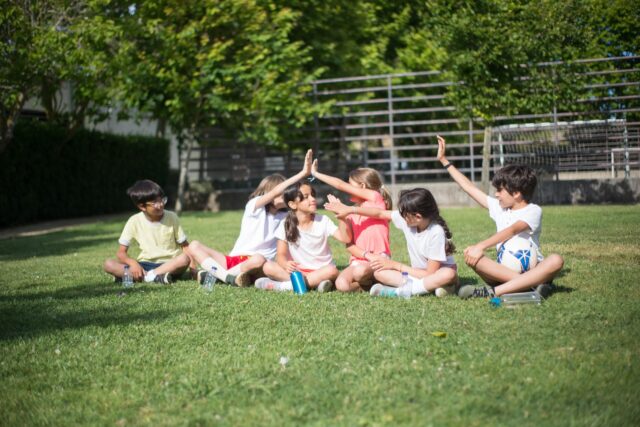For those tasked with establishing camp policies and organizing activities, that often starts with finding ways that they can create a positive and welcoming experience for their campers. However, the reality of having any group of people together is that social structures will emerge. As a result, bullying at camp can occur. Because of that, it’s imperative to be able to spot and prevent bullying and respond to those situations constructively.
According to the American Camp Association, as much as 60% of bullying may be unreported, and bullying is one of the top reasons that a child may not return to camp again. Here are ways you can work to prevent bullying at camp and provide a safe and inclusive space for all campers.
What is Bullying?
Bullying behavior is aggressive, repetitive behavior that involves a power imbalance. Power doesn’t have to be physical – the biggest kid might not be picking on the smallest kid. Instead, a power imbalance can be built by exclusion, popularity, or access to embarrassing information.
For children, there are three main types of bullying:
- Physical Bullying: hurting a person or their possessions physically. The bully may cloak behaviors as being “accidental,” such as tripping or pushing someone or dropping their possessions.
- Social Bullying: hurting a person through their relationships. Also known as Relational Bullying, this refers to leaving someone out on purpose, spreading rumors, and encouraging others to not be friends with the victim.
- Verbal Bullying: hurting a person through words. Verbal bullying includes name-calling, teasing, joking, taunting, and threatening.
Targets of Bullying
The most common victims of bullies are those that are perceived to be different from their peers. It’s important to be especially conscious of how campers are being treated if they are:
- A less-represented race at your camp
- LGBTQ
- Disabled or have special needs
- Overweight or physically different
- On a scholarship
Signs of Bullying
There’s a good chance that catching bullying might mean finding signs that bullying is happening, not catching it in the act. Be sure that your counselors have ample time, in the beginning, to get to know each camper so that they can catch changes in behavior. Some signs to look for include:
- Often opting out of activities by feeling sick or feigning illness
- Changes in eating habits
- Avoiding social situations
- Unexplained injuries
Identifying bullying without seeing it happen and knowing how to ask the right questions requires experience, time, and training. Give your team the support they need to be able to serve your campers well.
Ways to Prevent Bullying at Camp
- Create a Zero-Tolerance Policy
Many camps have parents sign that they understand that there’s a zero-tolerance policy for bullying at camp. However, this shouldn’t be the only time that policy is discussed. Counselors should make their expectations clear and model the behavior they want to see.
- Provide a Way for Children and Parents to Report Bullying
Whether it’s through your parent dashboard, a direct text message line, or one-on-one time with counselors, you need to ensure that everyone knows all the ways that they can report bullying to the right person at camp. Additionally, reinforce these messages throughout your time together – not just on the first days, when everyone’s on their best behavior. Finally, teach kids the importance of not being a bystander, and encourage campers to report troubling behavior, even if they aren’t the target.
- Train Your Staff
Many camps hire young counselors who are not trained in child development or how to handle social issues. While they can promote friendship and cooperation, it’s vital that they know how to identify bullying and how to intervene. Hire a bullying prevention trainer, practice role-playing bullying interventions, and provide resources for them to refer to in different situations.
- Diversify Your Staff
If all of your staff is from a similar background without representation of different races, gender identities, ethnicities, or abilities, then it can be hard for a kid bullied for being different to feel safe confiding in an adult. It can also make kids from dominant groups feel less likely to be able to “get away” with acting out. Representation is important to kids, including at camp.
About CampSite
CampSite’s comprehensive camp management software is relied on by camps of all kinds across the country. Our customizable platform, frequent product updates, and 5-star support team make us a trusted and necessary camp management tool.
Want to learn more?
Request a free personalized demo with one of our sales experts!
